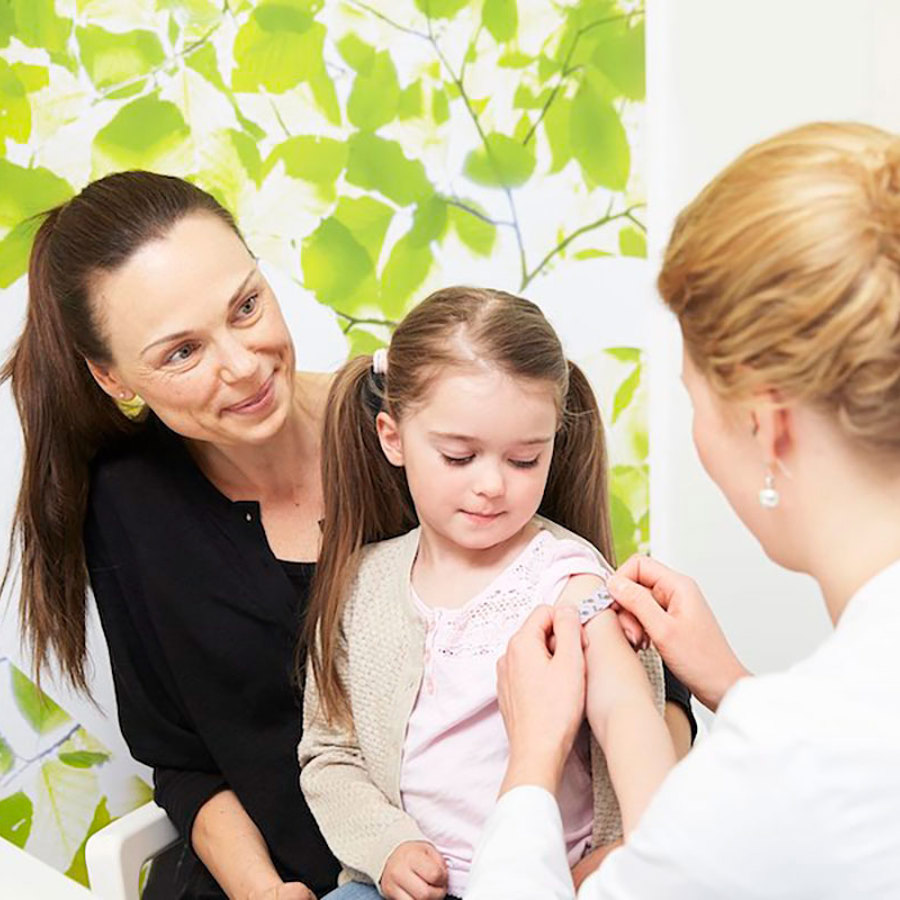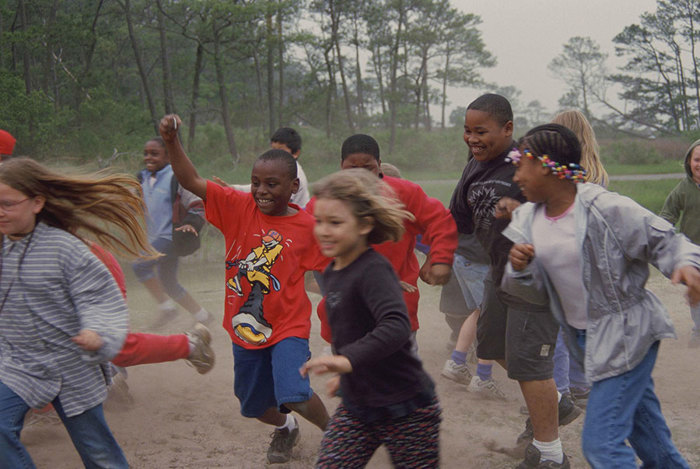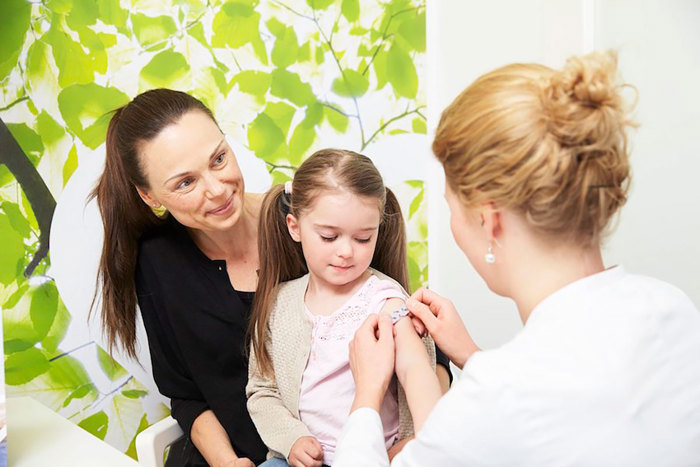
Are some kids at higher risk of getting autism from a vaccine?
May 21, 2015

- Related Topics:
- Autism,
- Complex traits,
- Genetic myths,
- Editor's choice
A curious adult from California asks:
“Has anyone shown whether some kids are at a higher risk for getting autism from a vaccine?”
A recent study shows that this is almost certainly not the case. There doesn’t seem to be a set of genes that make some kids extra susceptible to ending up with autism from a vaccine. At least not from the one that is always implicated in autism — the MMR or measles-mumps-rubella vaccine.
Everyone is at the same risk for autism from this vaccine — zero. We are getting very close to being able to hammer in the final nail in the coffin of the idea that there is any link whatsoever between vaccines and autism.
Vaccines Do Not Cause Autism
Study after study has shown there is no link between vaccinations and autism (click here and here for two of many, many reviews). No one has been able to reliably show that if you get vaccinated you are at a higher risk for autism. No one.
Even with all of these data, there is still a troubling minority of people who do not trust vaccines.
And they have come up with a hypothesis for how vaccines could cause some kids to have an increased risk for autism. Their idea is that there could be a small subset of kids who are at a much higher risk for getting autism because of vaccinations. These kids’ results would be masked in the findings of the larger group.
While there is no evidence to support such a hypothesis, it isn’t unreasonable. It is easy to imagine that there may be certain genetic combinations which cause such an increased risk. And even better, there are ways to test it.
When this was tested in a recent study, the researchers saw no evidence of a small pool of kids at a higher risk. People can safely vaccinate their kids for the common good of everyone and themselves.
(As an aside, it turns out that not only will a vaccine prevent the diseases it is designed against, but there is new solid evidence that MMR is even better. By keeping the measles away, it keeps kids from getting lots of other infections caused by the long term effects of a measles infection on their immune system.)

Shared Genetics, Shared Risk (or Lack Thereof)
To show that vaccines predispose no one towards autism, the researchers compared families who had either one or two kids with autism. Basically they wanted to see if MMR vaccination rates had any impact on the chances for a second child to end up with autism. They didn’t.
In families with two kids with autism, it didn’t matter whether the second child was vaccinated or not. The risk for autism was the same in both cases.
So that is pretty much it. Vaccines do not appear to cause autism even in a small subset of kids.
Now even though this worry was probably overblown, this does not mean it wasn’t credible. It was a reasonable if unlikely model. It was just wrong.
Individual Versus Average Risk
One way to think about all of this is to consider a genetic disease like cystic fibrosis (CF). If you look up the numbers, you’ll see the average risk that a Caucasian child will be born with CF is something like 1 in 3,000. This number has very little to do with your specific situation no matter what your background.
The risks for your kids are actually either 1 in 4 or very close to zero. The 1 in 3000 is a compilation of these two risk pools. There are a few couples whose children are at a high risk for CF and a whole lot of couples whose kids essentially have no risk.
You need to look at individual families to tease out this difference. Maybe the Jones family has CF scattered through their family tree while the Smiths have never seen it.
Once you have this information, you can then set out to find the genetic reason some families are at a higher risk. You can then pinpoint the genetic cause and look for it in families where the disease isn’t seen. A genetic test is born.
This same kind of thing might have been happening with autism and vaccines. It could have been that a small group of kids had a very high risk for getting autism from vaccines while the vast majority had essentially no risk. The family study saw no evidence of this.

There was no correlation between getting the MMR vaccine and having multiple children with autism. This means there is probably not a genetic link between autism risk and vaccines. Vaccines do not cause autism. To repeat, there is no credible evidence whatsoever that vaccines cause autism.
This is not to say, however, that there is no link between genetics and autism. There is. In fact, many scientists think genetics is the most important risk for developing autism. It is just that this genetic risk is not tied to vaccines.
Read More:
- The Lancet: Original, disproven article linking autism to vaccines
- KQED: Genes and Autism
- Genetic Literacy Project: Autism study reveals patterns in family genetics
- ASF: More on the science showing that autism and vaccines are NOT linked

Author: Dr. Barry Starr
Barry served as The Tech Geneticist from 2002-2018. He founded Ask-a-Geneticist, answered thousands of questions submitted by people from all around the world, and oversaw and edited all articles published during his tenure. AAG is part of the Stanford at The Tech program, which brings Stanford scientists to The Tech to answer questions for this site, as well as to run science activities with visitors at The Tech Interactive in downtown San Jose.
 Skip Navigation
Skip Navigation
